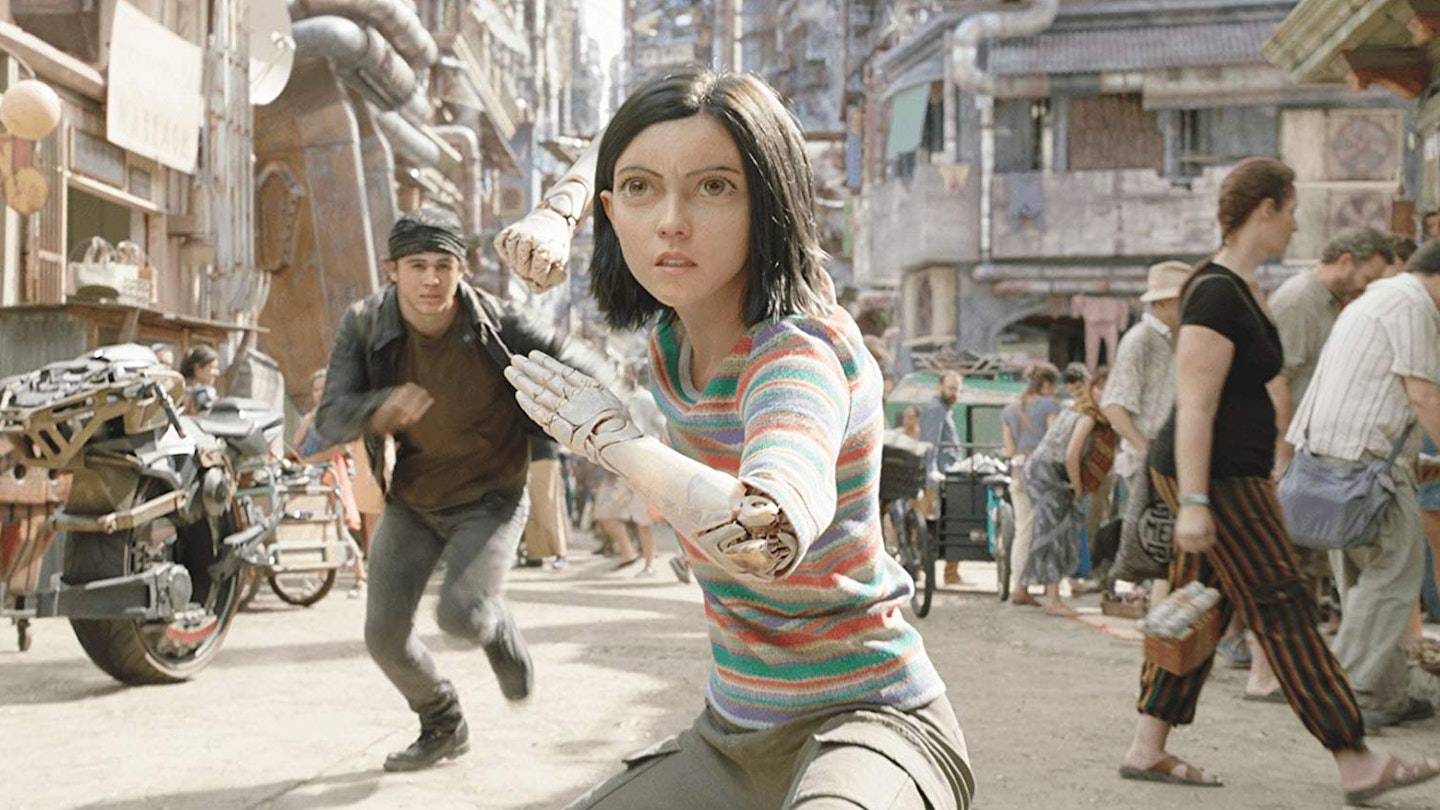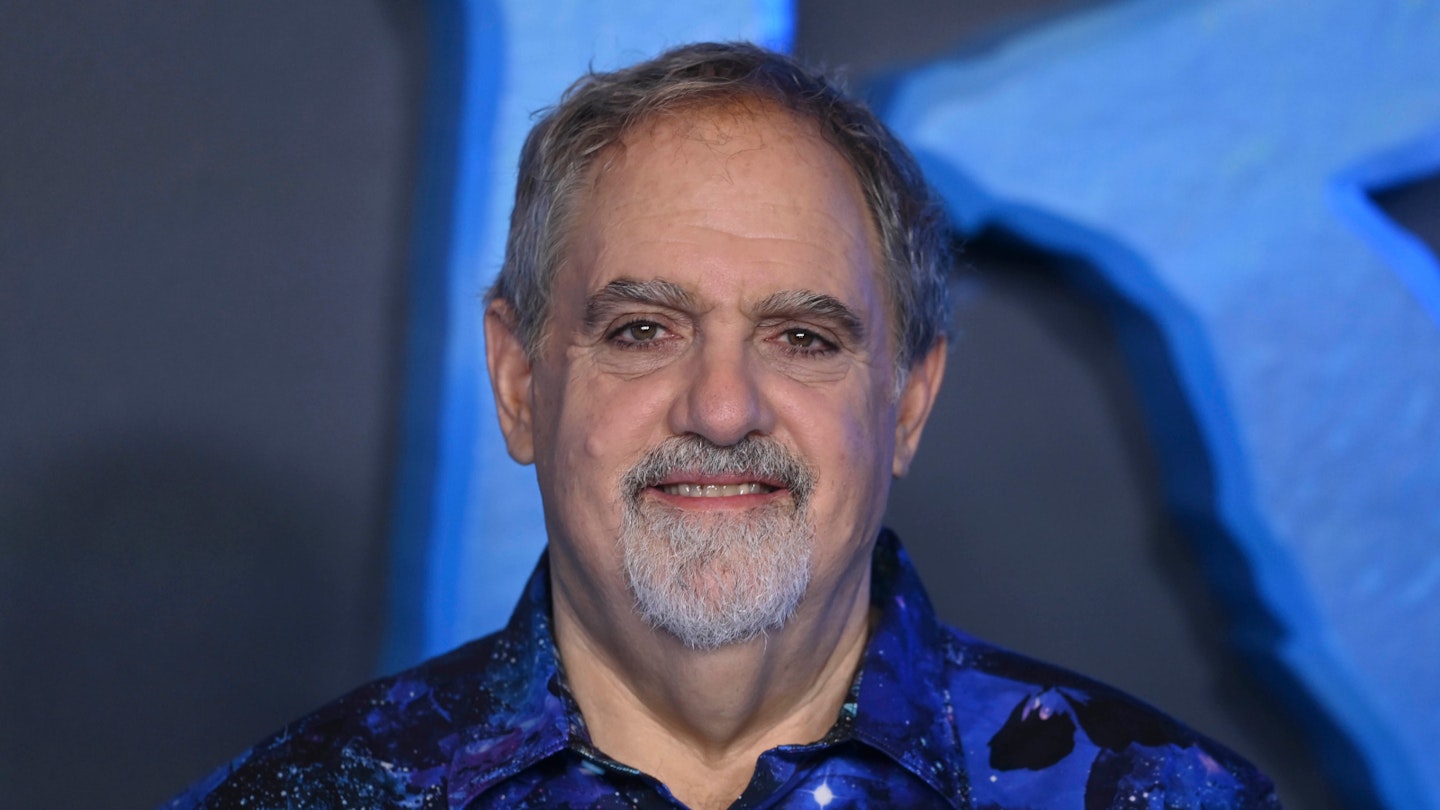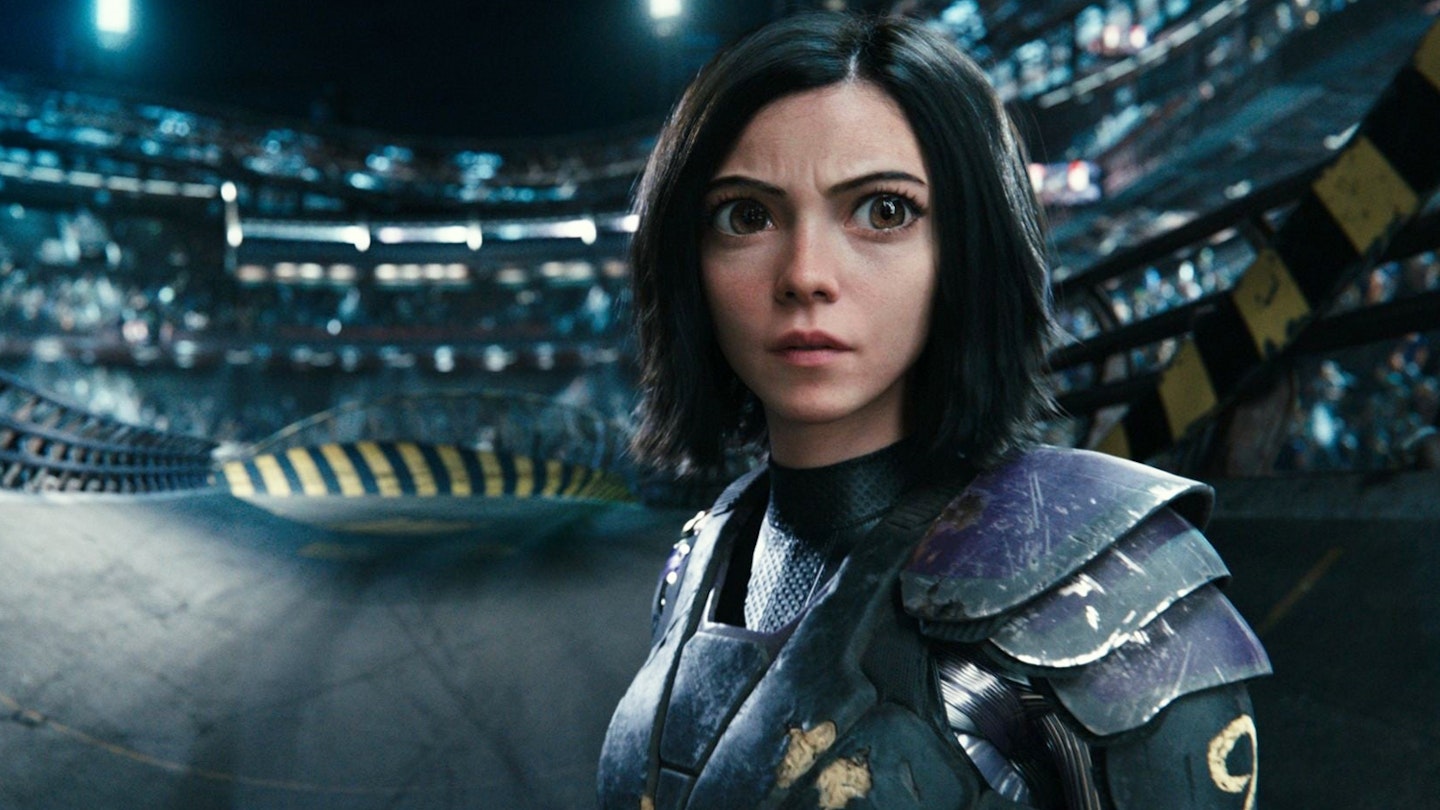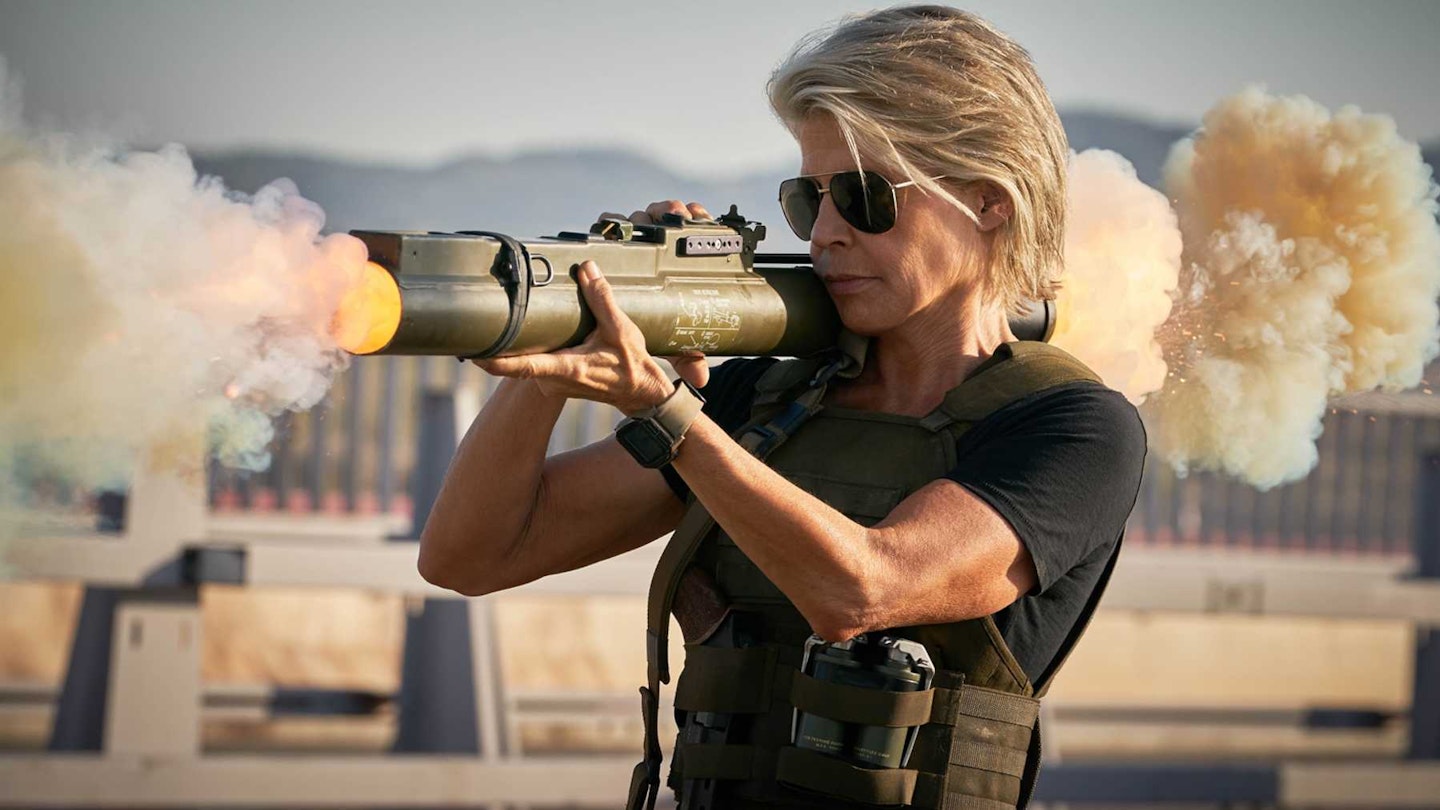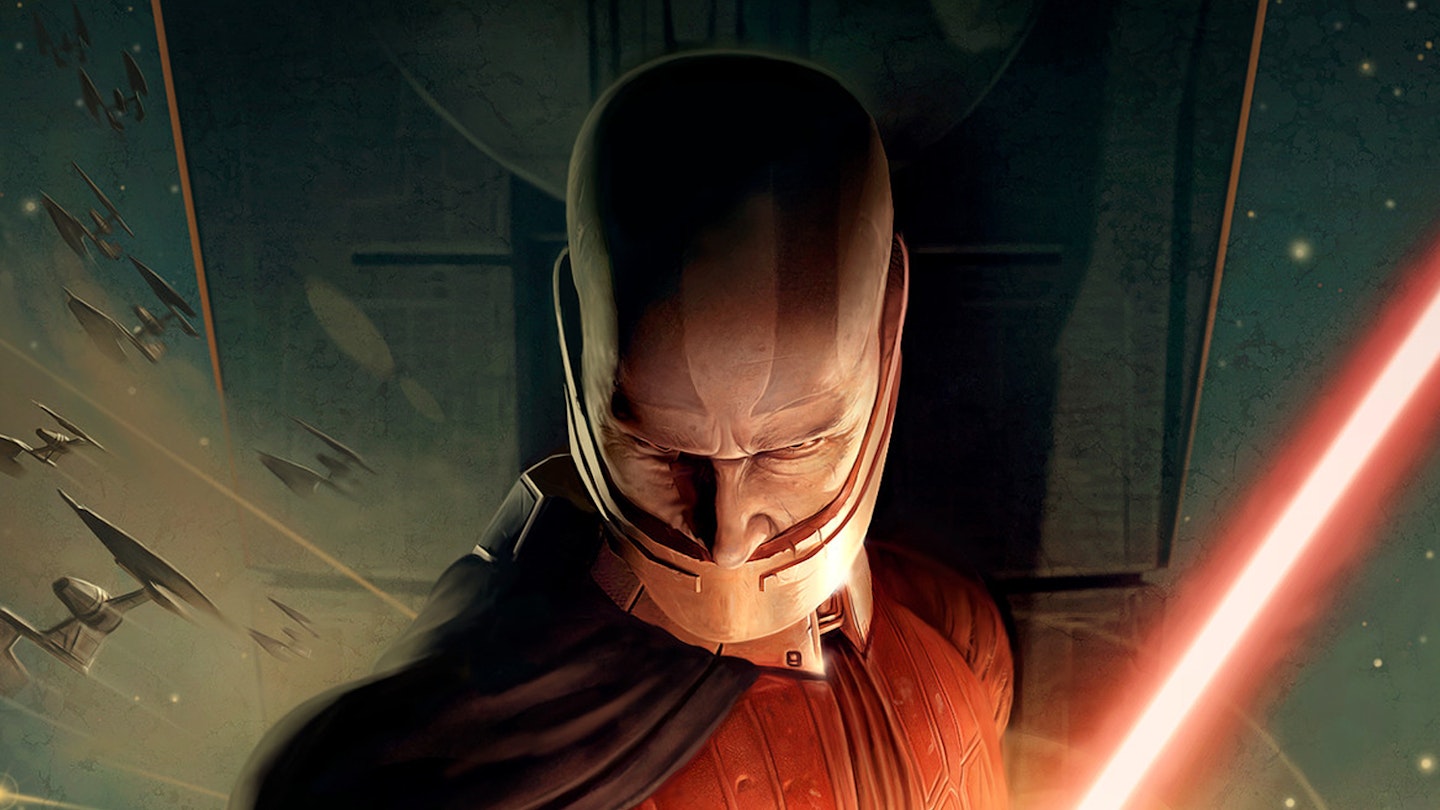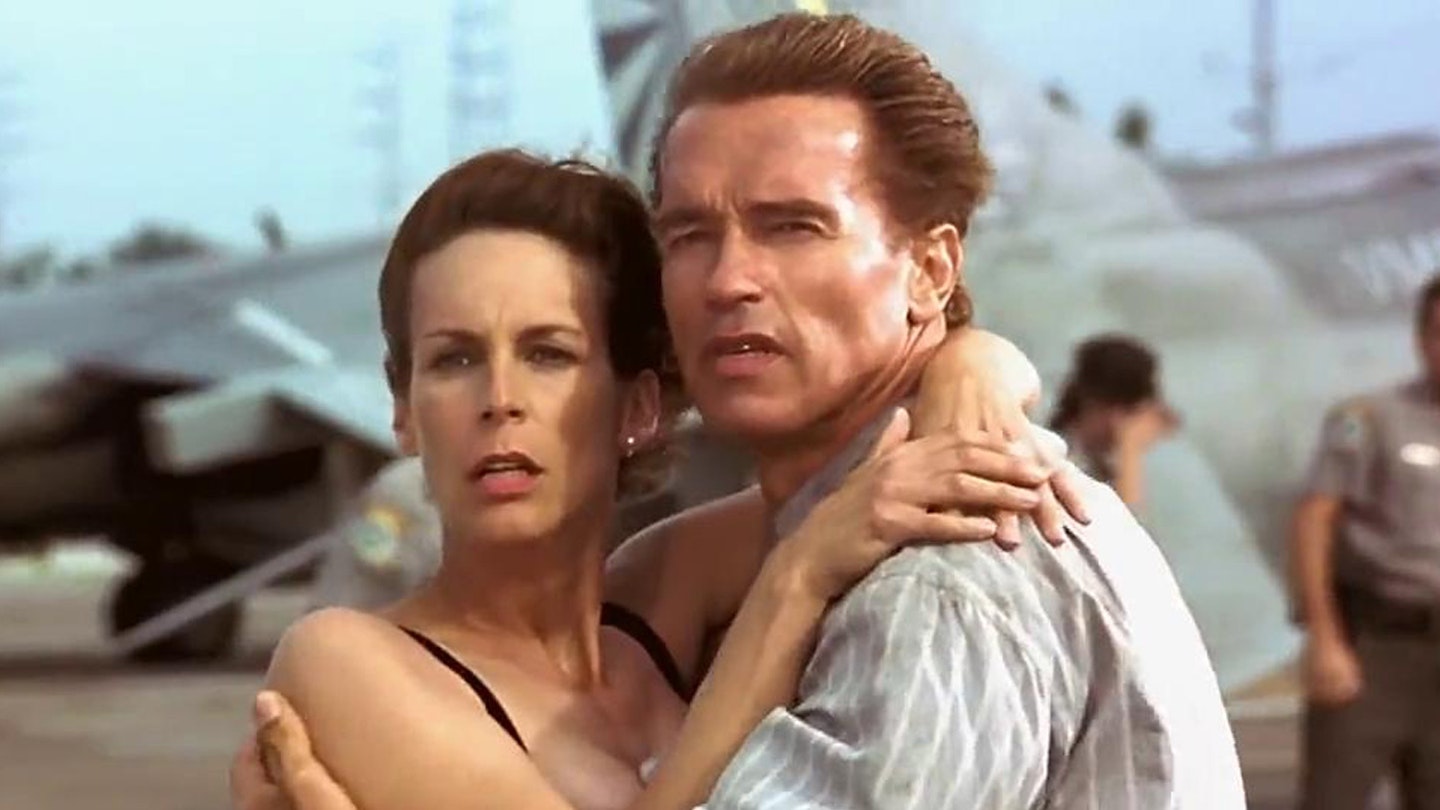James Cameron is a filmmaker who’s never failed to surprise us. He gave Alien a kick-ass war-movie sequel and turned an over-budget sinking-ship romance into history’s biggest movie, subsequently outgrossed when he made us all go ga-ga for nine-foot-tall blue cat people. His cinematic visions have always felt awesomely vast and startlingly original.
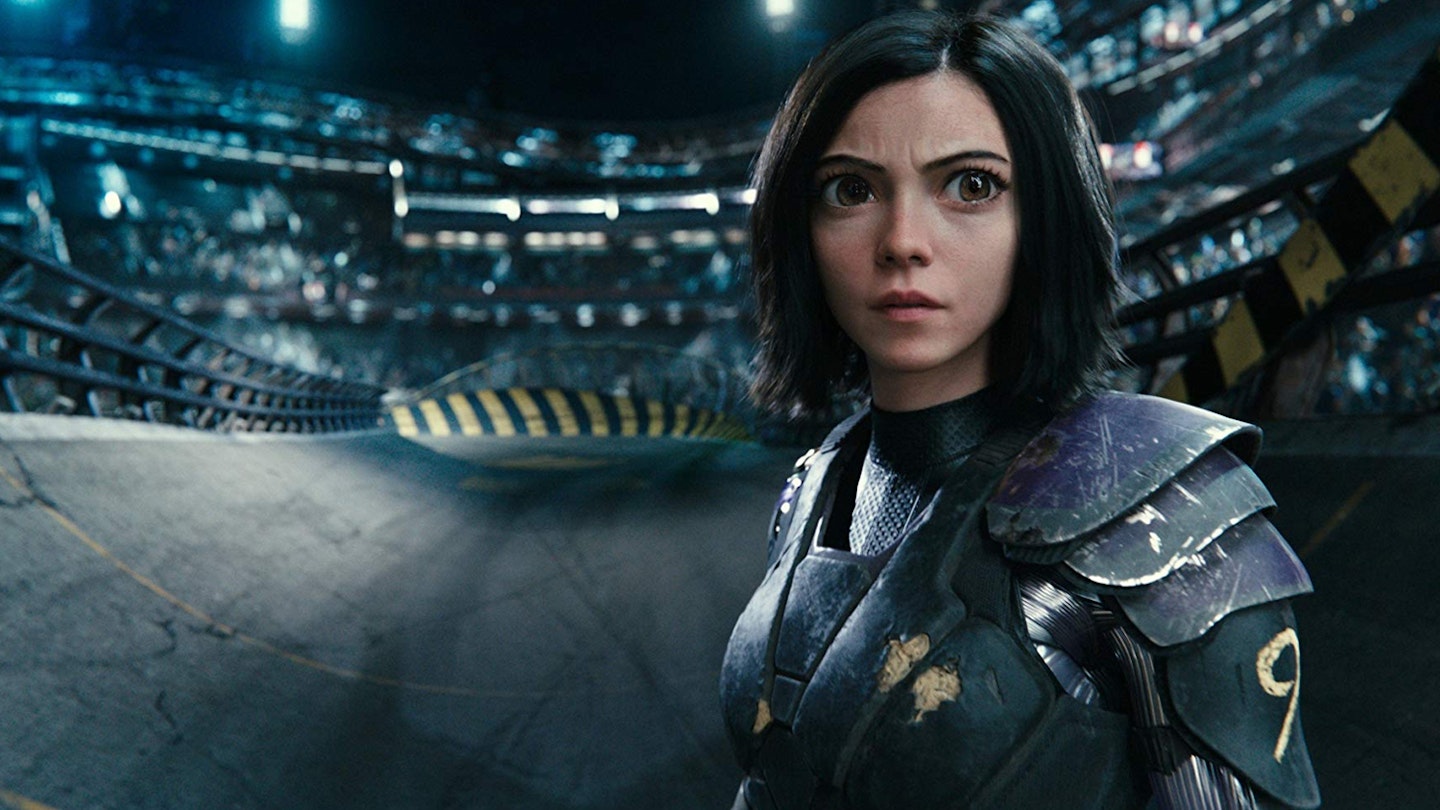
But what’s surprising about Alita: Battle Angel is how familiar it feels. Its have/have-not divided world, where sky-utopia Zalem floats over the trash-bombed Iron City, was recently done in Elysium. Its plot-driving future-sport, ‘Motorball’, is Rollerball with a Transformers makeover. And its protagonist’s struggle with identity and humanity is right out of Ghost In The Shell (both versions). Even the manga-eyed Alita, while no uncanny valley girl and stunning rendered by Weta Digital’s state-of-the-artists, recalls Ready Player One’s OASIS avatars.
When Alita pirouettes into action, Rodriguez doesn’t fail to deliver.
Of course, this isn’t strictly a James Cameron film; Alita’s writer and producer passed the directing reins to Robert Rodriguez. And, like Ghost In The Shell, it’s an elaborate, live-action reskin of a manga-based anime (Yukito Kishiro’s Battle Angel Alita). But, given he’d held it so close for decades, refining the script and world building with Laeta Kalogridis (Terminator Genisys, Altered Carbon), you might have hoped it would feel less like another cyberpunky mash-up and more like a stand-out James Cameron spectacle.
Thankfully, Rodriguez at least proves the right directing understudy, effortlessly upgrading his hands-on, low-fi, free-swaggering style to compete in the megabucks studio arena. When Alita pirouettes into action, crunching cyborg skulls with her slender fists or slicing them into robo-Chum with her iconic Damascus Blade, Rodriguez doesn’t fail to deliver, keeping the choreography slick and inventive, while pushing the 12A rating as far as he can. We’d expect nothing less from the crazyhead behind Desperado, Planet Terror and From Dusk Till Dawn. There’s even a glorious, bloody brawl in a bar-room which feels like a bionic Titty Twister. His glee for squirmy-violent beats is evident throughout, as is his aptitude for lean, propulsive storytelling — during the first hour at least.
When it hits the final act, things start to crumble like Iron City’s masonry. The Motorball thread — will Alita become the sport’s champ and gain access to Zalem? — is strangely side-lined. The romance, between Alita and bland bad-boy Hugo (Keean Johnson), is plumped into implausibility. Characters start popping up in places they’d never know to be, just because the plot demands it. And the cliffhanger ending is flagrant sequel-bait, frustratingly delaying the revolutionary resolution Alita deserves. We can only hope that a second film will lift her out of cyber genre conventions and conjure a bit more of that old Cameron magic.
